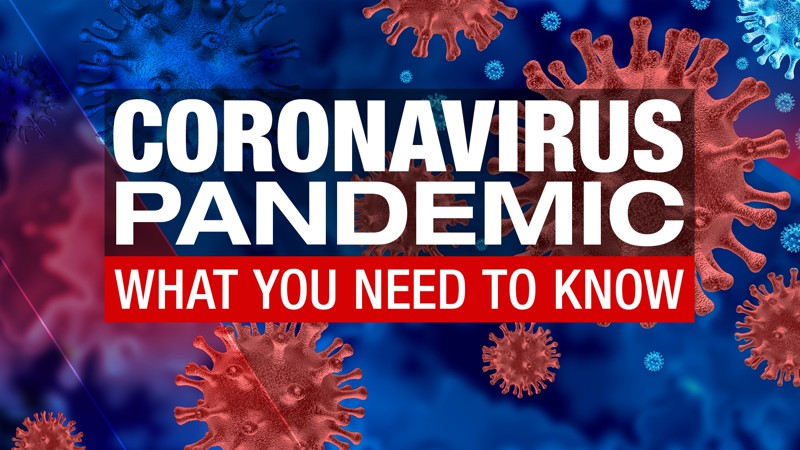Processed meats like hot dogs, sausages and bacon can cause colon cancer and red meat is also a likely cause of the disease, World Health Organisation experts say, in a potentially heavy blow for the global meat industry.
Key points:
Analysis of 800 studies worldwide found evidence “consumption of processed meat causes colorectal cancer”
Varieties of meat include salted, cured, fermented and smoked meat, among others
Processed meat added to same category of cancer-causing agents as smoking and asbestos
Could account for 50,000 worldwide deaths per year
The analysis of 800 studies from around the world by the International Agency for Research on Cancer (IARC) found “sufficient evidence in humans that the consumption of processed meat causes colorectal cancer”.
“Each 50-gram portion of processed meat eaten daily increases the risk of colorectal cancer by 18 per cent,” it said in a statement.
The category includes meat that has been salted, cured, fermented or smoked ? hot dogs, sausages, corned beef, dried meat like beef jerky or South African biltong, canned meat or meat-based sauces.
The finding supports “recommendations to limit intake of meat” ? particularly in processed forms, the IARC said.
“In view of the large number of people who consume processed meat, the global impact on cancer incidence is of public health importance,” IARC official Kurt Straif said in a statement.
For an individual, the risk of getting cancer from eating processed meat was statistically “small”, the agency said, but “increases with the amount of meat consumed”.
The IARC added processed meat to the same group 1 category of cancer-causing agents as tobacco smoke and asbestos.
For unprocessed red meat ? beef, veal, pork, lamb, mutton, horse or goat – the review found “strong” evidence of a cancer-causing effect, but not sufficient to place it in the same group of cancer-causing agents.
Instead, unprocessed red meat was classified as a “probable” carcinogen in its group 2A list that also contains glyphosate, the active ingredient in many weedkillers.
As for processed meat, the red meat risk was mainly for cancer of the colon and rectum, but also the pancreas and prostate, the report said.
Should I stop eating red meat?
The UN’s International Agency for Research on Cancer has warned that processed meats like sausages and ham cause bowel cancer, and red meat “probably” does too. Does this mean we should stop eating meat?
The agency cited research attributing about 34,000 cancer deaths per year worldwide to diets high in processed meat.
As for red meat ? if the suspected link were to be confirmed ? it would account for some 50,000 cancer deaths per year worldwide.
The numbers were dwarfed by the estimated one million cancer deaths per year due to tobacco smoking, 600,000 from alcohol use, and more than 200,000 due to air pollution, the agency said.
Given that red meat is an important source of human nutrition, the results should help governments and regulatory agencies balance the risk and benefits of eating meat, the agency said.
It did not make a finding on whether the cooking method of meat affects the cancer risk.
The preparation of the IARC’s report has already prompted vigorous reactions from meat industry groups, which argue meat forms part of a balanced diet and that cancer risk assessments need to be set in a broader context of environmental and lifestyle factors.
Moderation the best approach: Chief Scientist
In his first press conference, Australia’s new Chief Scientist Dr Alan Finkel said moderation was key when eating processed meat.
“Of hundreds and hundreds of environmental chemicals and food stuffs that were looked at, only one was not regarded as carcinogenic,” he said.
“So moderation is probably the best approach.”
Dr Christina Pollard of Curtin University’s School of Public Health in Western Australia said the findings were consistent with current Australian Dietary Recommendations.
“We’ve known for quite a long time that we need to limit high processed food consumption and to only have a moderate amount of lean meat,” Dr Pollard said.
“It’s really important to have a look at it in the context of the Australian population ? what they currently eat and how that translates to diet.
“On average Australians, particularly men, eat about 20 per cent more meat than they need on any given day.”
Dr Pollard said Australians need to predominantly eat a diet that is high in fruits and vegetables and wholegrain cereals ? with only a moderate amount of lean red meat.
The report identified processed meats as any meat that had been transformed through salting, curing, fermentation, smoking or other processes to enhance flavour or improve preservation.
Dr Pollard said processed meats being placed in group one means there is convincing evidence that it does cause cancer in humans, but warned people not to get carried away.
“It doesn’t mean that eating meat is the same as smoking cigarettes,” she said.
“That interpretation would be wrong.”
What are ‘red’ and ‘processed’ meat?
First, let’s clear up some definitions.
‘Red’ meat is (as you might expect), any meat that’s a dark red colour before it’s cooked – this obviously means meats like beef and lamb, but also includes pork.
‘Processed’ meat is meat that’s not sold fresh, but instead has been cured, salted, smoked, or otherwise preserved in some way (so things like bacon, sausages, hot dogs, ham, salami, and pepperoni). But this doesn’t include fresh burgers or mince.
Both of these types of meat are distinct from ‘white’ meats, like fresh chicken or turkey, and fish (neither of which appear to increase your risk of cancer).
The evidence so far
There’s now a large body of evidence that bowel cancer is more common among people who eat the most red and processed meat. As this evidence has steadily built up, Cancer Research UK have blogged about it several times – and it’s covered on the NHS Choices website and by the World Cancer Research Fund (WCRF).
(There’s also growing evidence for a possible link to both stomach and pancreatic cancers, but this seems to be less clear cut than the link to bowel cancer.)
The most convincing overview of the evidence of a link to bowel cancer comes from a 2011 analysis by researchers at the WCRF, who combined the results of a number of previous studies, to try to get a clear sense of the overall picture.
They were able to group the data according to those who ate the most red and processed meat and those who ate the least. A key finding from the WCRF analysis is that red meat and processed meat aren’t equally harmful: processed meat is more strongly linked to bowel cancer than red meat.
The results showed that those who ate the most processed meat had around a 17 per cent higher risk of developing bowel cancer, compared to those who ate the least.
’17 per cent’ sounds like a fairly big number – but this is a ‘relative’ risk, so let’s put it into perspective, and convert it to absolute numbers. Remember these are all ball-park figures – everyone’s risk will be different as there are many different factors at play.
We know that, out of every 1000 people in the UK, about 61 will develop bowel cancer at some point in their lives. Those who eat the lowest amount of processed meat are likely to have a lower lifetime risk than the rest of the population (about 56 cases per 1000 low meat-eaters).
If this is correct, the WCRF’s analysis suggests that, among 1000 people who eat the most processed meat, you’d expect 66 to develop bowel cancer at some point in their lives – 10 more than the group who eat the least processed meat.
Source: ABC News





